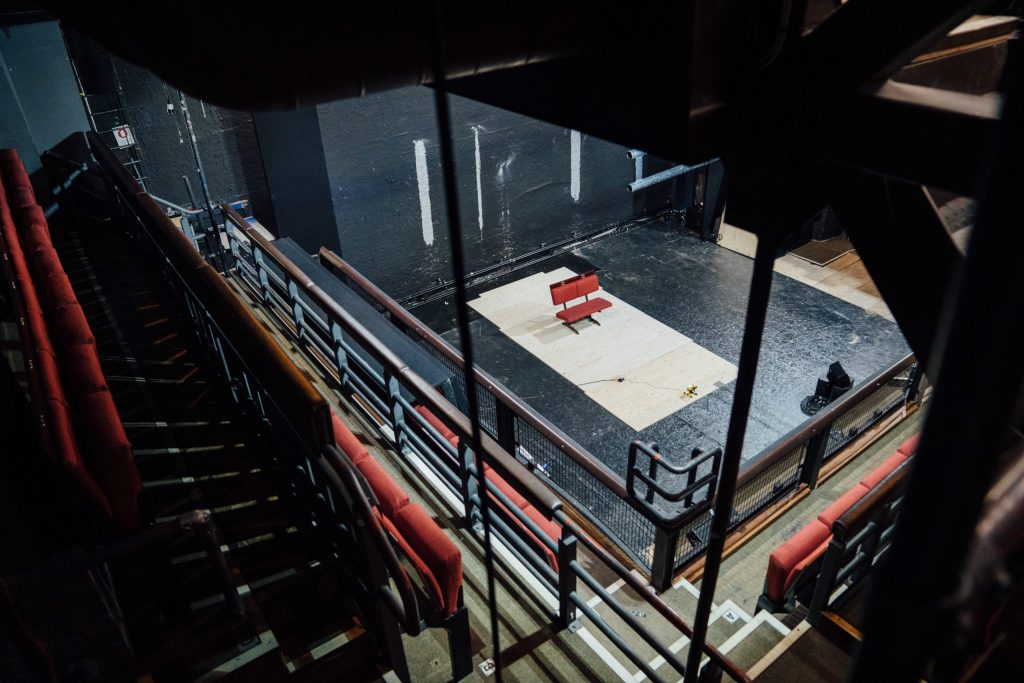“How did that Sound?”: My Simulated Interview

On the third week of our second semester, we all took part in simulated interviews as part of our placement module. We prepared and conducted interviews based around a chosen job description, I decided to base my interview around an assistant sound design role for an upcoming production of Mary Seacole at the Donmar. position, I have multiple skills that would be required by a sound designer, such as technical experience with designing and operating sound in theatrical productions, not to mention that theatres such as these require large amounts of staff which provided ample opportunity for employment[1]. I will now use Borton’s Model to reflect on the simulated interview process.
[1] See Donahue and Patterson p.6
In preparation for this role, I considered what areas would be covered in the interview by looking at the job description itself, as part of the simulation involved my peers developing questions based on the information provided by the description. Looking at details in the job description, I decided to do some contextual research on the production itself. I looked into the background of the real historical figure Mary Seacole and the Crimean War she was a part of. This was beneficial in the interview process for two reasons, not only did it allow me to prove interest in the project through proof of research and knowledge, but it also allowed me to think about how this context could be applied to the sound design of the production. For example, the primary type of weaponry used during the Crimean War was artillery, the sound design of the piece could reflect this as Mary would have been involved with soldiers around the front lines. This important to make a believable and accurate world for the audience, as well as the fact that the employer requires candidates who have attention to detail and are already thinking about the project. Upon reflection, I could have applied this research to other areas of the job description. One area I did not cover was the Donmar itself, concerning its history of productions and the non-profit nature of it’s work. This is important to cover in the interview because the role is not for just an assistant sound designer, rather an assistant sound designer at the Donmar specifically. I would be able to demonstrate my interest and passion in this role with the Donmar by proving I am aware of their history, and it is a part of why I want to work at their theatre.
I believe the interview itself went successfully in self-reflection. A portion of the questions asked during the simulated interview related to relevant experience in a sound design position, I feel I was able to prove this by illustrating and explaining my experience with QU Players, The Drama society within Queens University Belfast. I detailed examples of technical experience I gained from my time, not only in sound design, but in other technical and creative roles. While at first this may not appear to be as important as a degree, it could be argued that the opposite is the case. My time in the drama society proved I was actively involved in theatre and that I wished to learn and improve, something that is integral to assistant roles on the industry. One question I struggled with in the interview was, “Do you have any questions for us?” I eventually formed one after I was caught off guard, but it was clear that this was something I should have previously considered. This was reinforced by my lack of research into the Donmar itself as I already mentioned, perhaps the employer would believe that I was not interested in their theatre compared to other candidates. This could appear to be a small detail but is actually rather vital, the employer could also be seeking an assistant sound designer to replace the resident sound designer in the future, so a clear passion should be demonstrated so they do not hire someone who will wish to go elsewhere when the production is complete. Despite this issue, I still believe that my body language and presentation were professional but also approachable, allowing me to answer questions clearly and confidently.
In conclusion, the simulated interview process has given me plenty of lessons to reflect on in preparation for my time in the industry. The main thing I need to improve on is that I need to take more time to research the company I am working for as well as the role I am applying for. I must prove to the employer that I understand and respect the companies process, an important detail when one considers that theatre companies can come in a variety of shapes and sizes, meaning that I could be speaking to a variety of individuals, for example my own assistant director role in my placement is in a student environment, where there is an extra purpose of education. Details like this are important to cover as the process of interviews can be quite stressful, especially in the current world where financial stability and steady employment is uncertain which has caused interviews to create more anxiety,[2]especially in the theatre industry. We must all then be ready to improve our interview skills no matter were we stand in experience.
[2] See McCarthy et al for more on anxiety related to virtual interviews
Bibliograpy:
McCarthy, Julie M., et al. “Distressed and Distracted by COVID-19 during High-Stakes Virtual Interviews: The Role of Job Interview Anxiety on Performance and Reactions.” The Journal of Applied Psychology, vol. 106, no. 8, Aug. 2021, pp. 1103–17.
Donahue, Tim, and Jim Patterson. Theater Careers : A Realistic Guide. University of South Carolina Press, 2012.
The Hot Seat
You May Also Like

When the BBC thinks you live in the Atlantic – My Simulated Interview
17 February 2022
Finding the Right Balance: My Simulated Interview Experience
14 February 2022
